The Coupe du Monde de la Pâtisserie, also known as the Pastry World Cup, is a prestigious international pastry competition that takes place in Lyon, France, every two years.
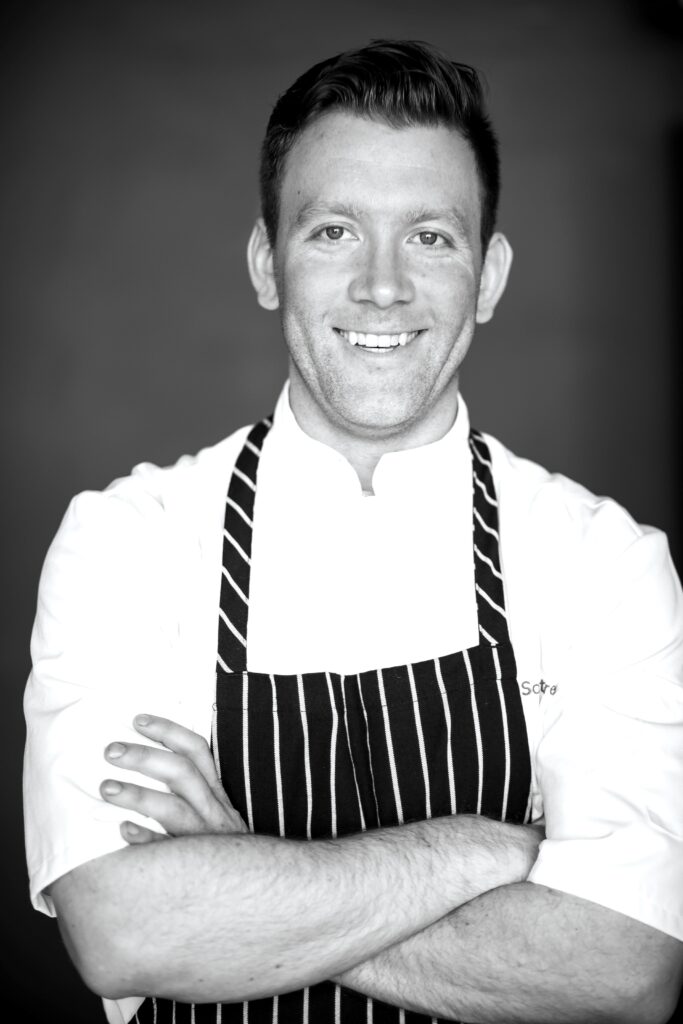
In 2015, Chef Scott Green was a member of the U.S. team that competed in the event. He, along with his teammates Josh Johnson and John Kraus, was coached by Chefs Donald Wressell and Ewald Notter. The team’s combined skills and talents earned them the bronze medal at the competition, showcasing their expertise in the world of pastry.
This event is known for attracting top pastry chefs from around the world who compete in various categories of pastry creation, including chocolate, sugar, ice sculptures, and more. Winning a medal at the Coupe du Monde de la Pâtisserie is a significant achievement and reflects the dedication, skill, and creativity of the participating chefs and their teams.
Two years after competing, Green penned an essay on his experience competing on the U.S. Team, as well as other competitions entitled, “Life as a Competition Pastry Chef.”
In his essay, Green delves into the intricate facets of the competition experience—touching on the emotional, creative, mental, and physical aspects. He candidly reflects, sharing, “I’ve encountered more losses than victories, yet excelling in competition is my forte, a consistent accomplishment throughout.” Concluding his piece, he extends valuable guidance to aspiring chefs stepping into the world of competition.
Below is the article Green wrote. It first appeared on 29 April 2017, on his blog, Devil’s Food Kitchen.
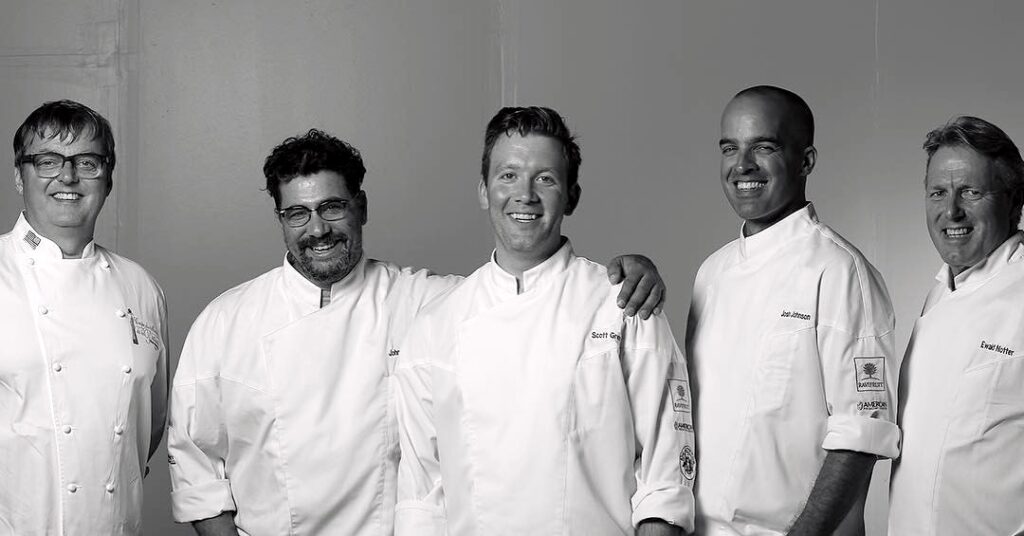
Josh Johnson, Ewald Notter.
Photo: Paul Strabbing
There’s nothing like competing at the highest levels of any endeavor, and pastry is no exception. I suspect that my experiences are the same experiences shared by people from all other walks of life that have challenged themselves within their own worlds of interests and talents. It is one of those things in life that many of us share, though we may never know it. The stress, the pressure, the adrenaline, the willpower and commitment, the euphoria and heartbreak, the sacrifices, the bonds of friendship, the creative forces and giants strides in personal and professional growth, all create the best and worst experience you could ever ask for. Being a part of competitive pastry has shaped me as a chef and a person in ways I will forever be grateful for. Simply put, I would never be who I am today had it not been for the competitions I was involved in, regardless of any outcomes. I was incredibly fortunate to have the opportunity to compete in the National Pastry Team Championship and two different World Championships (the World Pastry Team Championship and the Coupe du Monde de la Patisserie), the biggest competition stages in the industry for a pastry chef. They are experiences that absolutely broke me and at the same time built me up, and I wouldn’t trade them for the world.
“I got to work with a seriously talented group of chefs”
Although each one varies slightly, in general pastry competitions follow similar guidelines. They take place over a day or sometimes two depending on how many competitors or teams there are. During the competition, contestants have a limited amount of time (usually somewhere between 10 and 13 hours) to prepare edible and artistic work from scratch in a pop-up kitchen in front of cameras, judges and crowds of on-lookers. The kitchens are extremely cramped – think of a modest walk-in closet – and only the most basic equipment is provided. The remaining equipment you may need (and trust me you need a ton) must be stored and organized wherever possible within that walk-in closet just before the competition starts.

get comfortable with the space. Organizing and reorganizing was a constant
process as we learned the best placement for everything in our setup.”
Photo: Paul Strabbing
The edible work, known as the “degustation” often encompasses several different disciplines of pastry, including plated desserts, frozen cakes (bombe glace), mousse cakes (entremets), small entremet of a single serving known as petite gateaux, chocolate candies and bite-sized pastries called petite fours. These degustation items are due at specific times throughout the competition at which point they are usually weighed to fall within strict guidelines and then are judged by an expert panel on their looks and of course how they taste. This is some serious sh*t, with a failure to make a degustation deadline by seconds, or turning in a product that’s just a gram or two over a weight limit meaning serious point deduction or even disqualification of the item.
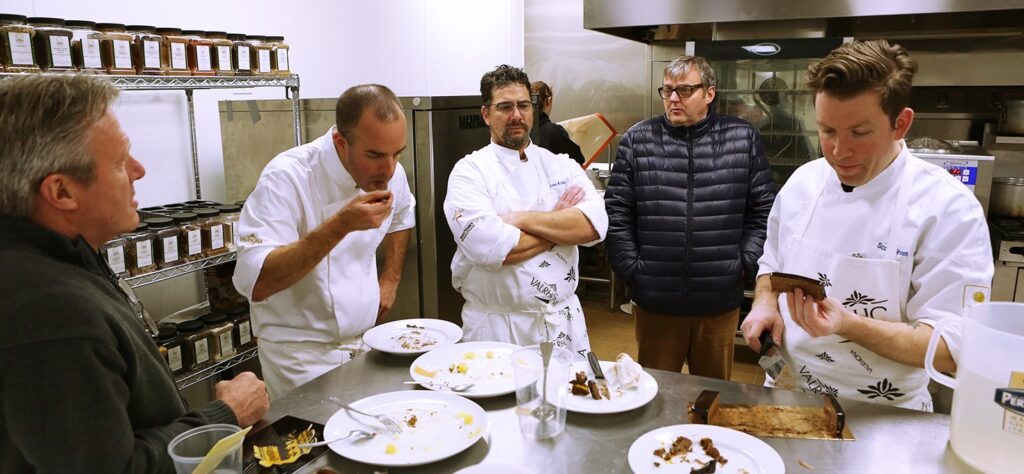
Photo: Paul Strabbing
On the other side of the fence, the competitors must also make one or more showpieces, most often a chocolate showpiece and a sugar showpiece. These are made from scratch and within the allotted time along with all of the degustation requirements. No inedible materials can be used to glue the pieces together, so super glue and duct tape aren’t in the bag of tricks. Once the showpieces are completed they have to be carefully moved from the competition kitchen to a buffet table by the competitors. If your showpiece breaks during the trip, too bad. If they make it in one piece, they are measured to fit within yet more guidelines and then judged on their overall artistic appeal and more specifically on the quality and variety of the techniques used.
While you’re doing all of this, you are being judged on how fast, organized and clean you work. Judges will often go through your trash to see how wasteful you were. If you’re smart you spend about as much time wiping down your work surfaces and cleaning your tools as you do cooking. If you fumble around, make even the smallest mistake or stop to think, you fall behind. Literally every minute is accounted for and organized into your workflow to ensure everything can be done in time and if you fall off that timeline, you better work double to catch up. There are no bathroom breaks. If you cut yourself, glue that f*cker shut, put on a glove and keep working. If you burn yourself, you probably won’t notice until you’re done anyway. If you’re lucky, you may choke down a power bar or some water during a 30 second break. Like I said, it’s some serious sh*t.
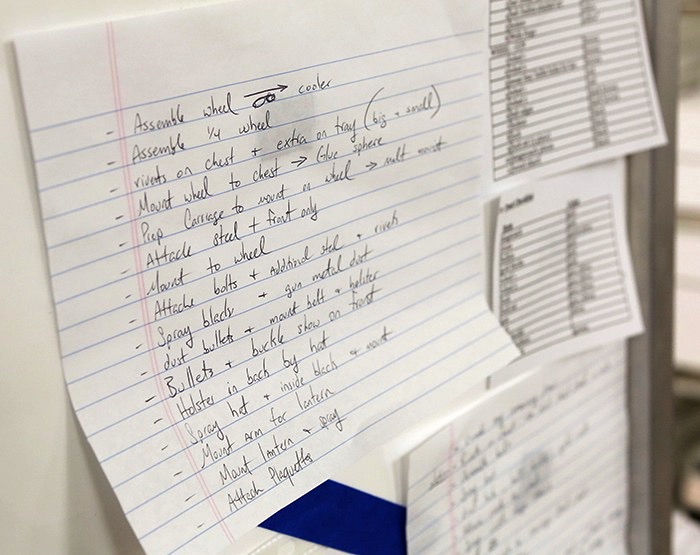
The actual day of days of a competition are like the tip of an iceberg. The public may ooh and ahh at the showpieces being built, or gasp when one comes crashing down, but it’s hard to appreciate how much work and sacrifice lurks below the surface to lead up to that day. On average, you’ll train for a high level competition for one to two years prior to it, usually six or seven days a week with every spare minute you have. It’s like taking on a second full time job on top of the notoriously long hours of being a chef. That alone is enough to deter or crack most people, but it’s far from the only hurdle. Or even the first one.
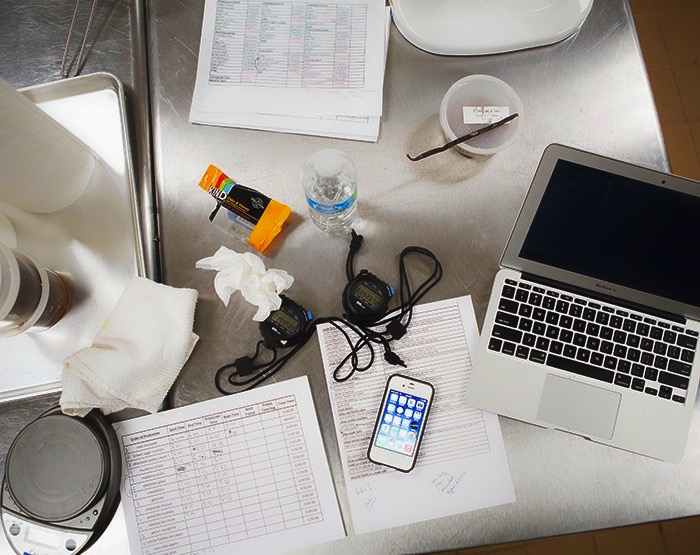
Many of the biggest competitions are team based, meaning you and one or two other chefs compete together, each taking on certain responsibilities throughout the timeline of the competition to present one cohesive set of products to be judged. This is easily the most common factor that will destroy the chances of success. It’s one thing to manage yourself through something as daunting as a major competition, but start tacking on other human beings and the level of drama and the room for inter-personal disaster grows exponentially.
In the end, competing is about how you practice, what you learn as a professional and about yourself. It’s about the people you meet and the friendships you develop. That sounds cliché because it is, but that’s really the lasting effect of a competition. To win is an amazing feeling, but no competition, no matter how big, can make your career with a victory or destroy it with a loss. Your career is made and broken with the quality of your work over time, how you carry yourself and how you treat others over a lifetime. A competition is just a moment on that timeline, and outcomes – good or bad – are quickly forgotten.
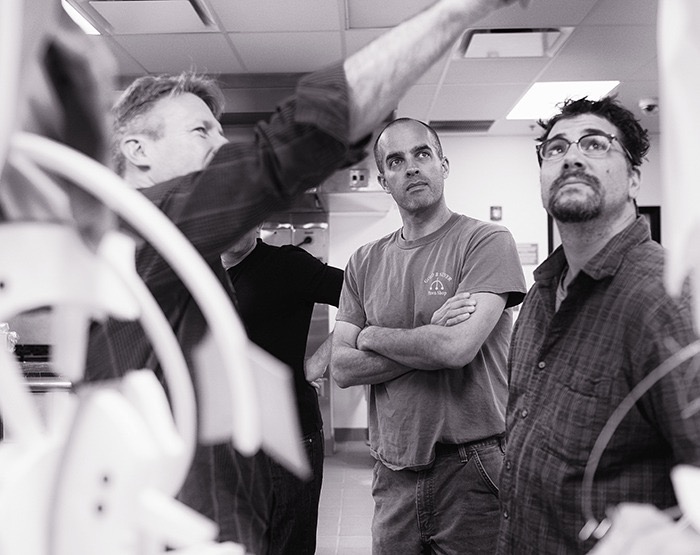
In the first stages of development, we create them on paper.
Photo: Paul Strabbing
The worst part about losing a competition is that you feel you’ve let down everyone that has supported you. When I was younger I wanted to win for myself, to prove my skills to the world. As I got older, I wanted to win for the people that sacrificed just as much as I had to get to the finish line. The single greatest factor in competing successfully is the village around you that will love and support you while you drag yourself through hell. The people that care the most about you are the ones that get you through a competition, and a competition is a great way to find out who those people really are.
Competing successfully and winning are two different things. I have lost far more competitions than I’ve won, but I’m good at competing and done it successfully each and every time. For any young bucks or buck-ettes out there itching to try their hands at it, let me give you a few pointers on what, in my experience, it takes.
The Anatomy of a (successful) Competitive Pastry Chef:
- Nerves of Steel – Honestly, I have never been nervous prior to or during a competition (save for one moment alone, during the 2012 World Pastry Team Championships). I don’t really get nervous in general. But nerves are common to most chefs that are about to hear the whistle of a competition begin, and that’s perfectly normal. What’s important is that once that whistle blows, you have the coconuts to step up and do what’s needed.
- Flexibility – A competition is like a battle or a first date; you go into it with a game plan that goes completely to sh*t once the bullets start flying. It’s crucial that you can adapt and adjust when SHTF, whether it’s a piece of equipment breaking, a piece of your work breaking, or any other of a million things that don’t go according to plan. If you get caught up in what was supposed to happen, instead of reacting to what is happening, you’re dead meat. Adjust. Adapt.
- Efficiency – The first two points seem pretty no-brainer. A shaky wreck of a chef that can’t handle reality isn’t going to make it far in life let alone a competition. But there are subtle skills that can make a world of difference in how you preform, and efficiency is one of them. I take real pleasure in analyzing systems and finding ways to streamline them. This can be anything from how my tools are organized on my table so they are a split second faster to grab when I need them to production methods and organization in my kitchen at work to developing techniques and tools that make a task faster and smoother. In a competition your time and space is incredibly limited, and you have to do everything in your power to maximize both.
- Humility and Confidence – I am as confident a person as you will ever meet. The idea of not being able to do something isn’t a line of thought that I overcome, it simply doesn’t enter into my consciousness at all, no matter how many times I get knocked down. It’s a big reason why I never get nervous. It has taken my entire life to wrestle with my natural-born confidence and temper it. With lots of hard work and therapy bills I have come to a place of unapologetic joy in being my confident self. But I am humble too. I am! True confidence can’t exist without humility, because humility releases you from a fear of failure, and that’s what confidence is all about. People who don’t understand that are struggling with their own confidence, or lack thereof. There’s nothing more threatening than someone who feels strong when you feel weak. And there’s a big difference between confidence and cockiness. Confidence is the belief in your abilities and your ability to achieve. Cockiness is the belief that those abilities make you better than someone else, and that you are incapable of failure. It is confidence that has lost touch with humility. I know what I am good at and I am proud to express it. But I also know that no matter how good I am at something, I will make mistakes. If you compete, you will be beaten down. People will doubt you and criticize you. You may even doubt yourself. There will be times when you will fail, and everyone will know it. You must be confident in yourself to face each new challenge like it is your first, with no doubt in your mind that you will succeed. You must be humble enough to accept criticism and failures as opportunities to improve. You must be gracious. This is not an easy dichotomy to live day to day, but it makes a great competitor.
